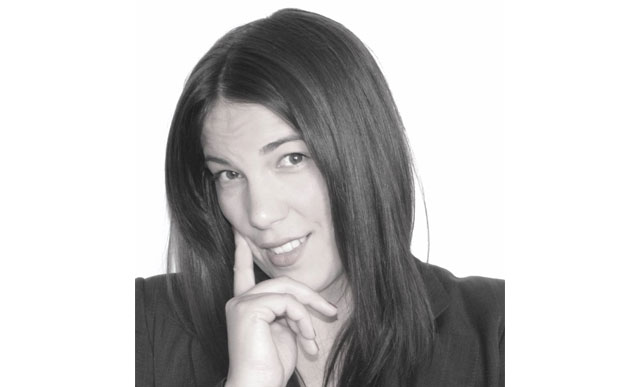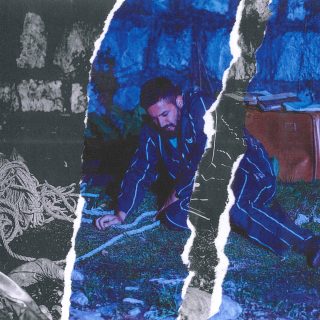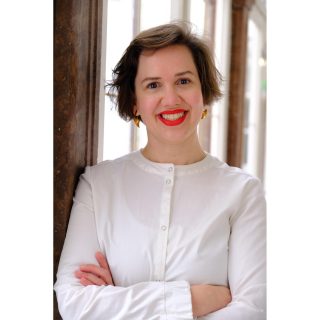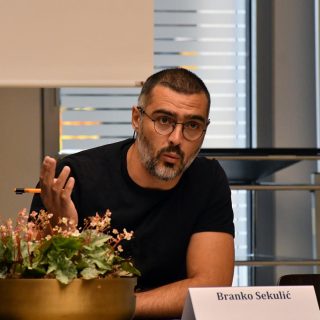The Sarajevo Film Festival (SFF) is not only the most important film festival in South East Europe, but also a symbol of unquestionable courage and unwavering spirit of a city that survived one of the most terrible periods in modern history. This festival, which was established in 1995, when the siege of Sarajevo was still part of a horrendous daily life, was much more than simply a cultural event – it was a sign of hope, resistance and unity in the darkest hours.
The siege of Sarajevo, which lasted from April 5, 1992 to February 29 1996, was the longest siege of a capital in history of modern warfare, during which the city was shelled on a daily basis and isolated from the rest of the world. In such an environment, in which a normal life was suspended and basic necessities were a luxury, art and culture provided a key source of comfort and escapism. Theatre plays, concerts and film screenings were lights in the dark, enabling the citizens of Sarajevo to escape the daily terror for a moment.
The Sarajevo Film Festival was born as a result of the necessary search for light and humanisation. It was held from October 25 to November 5, 1995 for the first time, while the city was still under siege. The festival aimed to provide hope and support to citizens of Sarajevo that were under siege and send a strong message to the world about the cultural spirit and resistance of the city. The name of the festival, ”Beyond the End of the World”, was inspired by the film ”Until the End of the World” by Wim Wenders and it was an excellent illustration of the mission and spirit of this event. The festival poster, made by the renowned photographer Annie Leibovitz, was another sign of the global support and attention focusing on this courageous city.
Although global film veterans such as Daniel Day-Lewis, Jeremy Irons and Vanessa Redgrave had planned to attend the opening of the festival, they were unable to do so due to circumstances back then, but that did not minimise the importance of the first edition. During twelve days of the festival, the Bosnian Cultural Centre was the location where the audience could view films from 15 countries. At a time when people in Sarajevo lived in constant fear and uncertainty, every screening was an opportunity to escape the reality. In addition to this, all screenings were sold out, and the theatre of the Bosnian Cultural Centre was always brimming full to the last seat, symbolising the wish for culture and art even during the darkest moments.
Press conferences with special guests were held at the gallery Obala Art, and there were no awards during the first festival, since, as the organisers put it, all people of Sarajevo were winners in 1995. This moment was more than an event – it was a symbol of resistance and humanness.
The festival has been transforming and expanding ever since. The red carpet, which used to be a typical red carpet at the beginning, was replaced in 2003 by a carpet inspired by the 1930 Sarajevo traditional carpet, kilim, combining contemporary and traditional art. The symbolic kilim connects the rich cultural heritage of Sarajevo with its modernisation and international recognition as a result of the festival.
Today, the Sarajevo Film Festival is not just an important cultural event, but a key venue for the promotion of the regional cinematography and development of film talents. With more than 100,000 visitors every year, including also filmmakers, actors and cinephiles, the festival is a platform for networking and development of new projects. Programmes such as CineLink Industry Days, Talents Sarajevo and Docu Rough Cut Boutique gather hundreds of film professionals, contributing to the development and promotion of new talents and ideas from the region, but also the whole world.
The programme ”Dealing with the Past” is crucial for the Sarajevo Film Festival, since it represents a bridge between cultural memory and artistic expression, offering a unique opportunity for reflection about historical and social traumata that shaped the region. This programme gathers films, documentaries and art projects focusing on complex historical issues, often focusing on war crimes, post-traumatic stress disorder and social changes. This programme of the festival does not only make it possible to express and explore personal and collective traumata, but it also fosters dialogue and understanding among the audience. Also, the programme gathers young people from the region, providing them with an opportunity to face the past and change their view of Sarajevo and its importance. As a result, the festival plays a key role in shaping new generations that will be better informed and more emphatic towards the complex history and culture of the region. The role of the programme ”Dealing with the Past” is of particular importance in the context of Sarajevo, a city with a rich and painful history, since it contributes to the process of reconciliation and building of a common future through art. The festival is therefore not only a platform for cultural expression and research, but also an active stakeholder in the social and political dialogue that is crucial for a post-conflict society.
The Sarajevo Film Festival is also an important forum for social discussions, offering a series of panel discussions and debates focusing on current topics in the field of culture, society and green policies. All these years, the festival has been a symbol of resistance and hope, a lighthouse in the dark, and has proven that art and culture can play a key role in connecting and educating communities.
Finally, the Sarajevo Film Festival is not just a memory of times when art gave comfort during the most difficult moments, but also a living manifestation of the strength of human spirit. From its modest beginnings during the war to its establishment as a prestigious event, the festival celebrates film art and promotes regional talents. Its presence in Sarajevo and the international film industry still reminds of the fact that, in spite of omnipresent difficulties, art and humaneness can find a way to overcome the most difficult challenges, making the world at least a bit better, fairer and more solidary.
This has been the case during the first thirty years of the festival, and may it continue in the coming years.
Anđelka Matijević was born and grew up in Čačak. She has been living in Sarajevo since 2019. She has been an activist at the local, national and regional level for more than ten years. She writes whenever she feels the need to do so.




